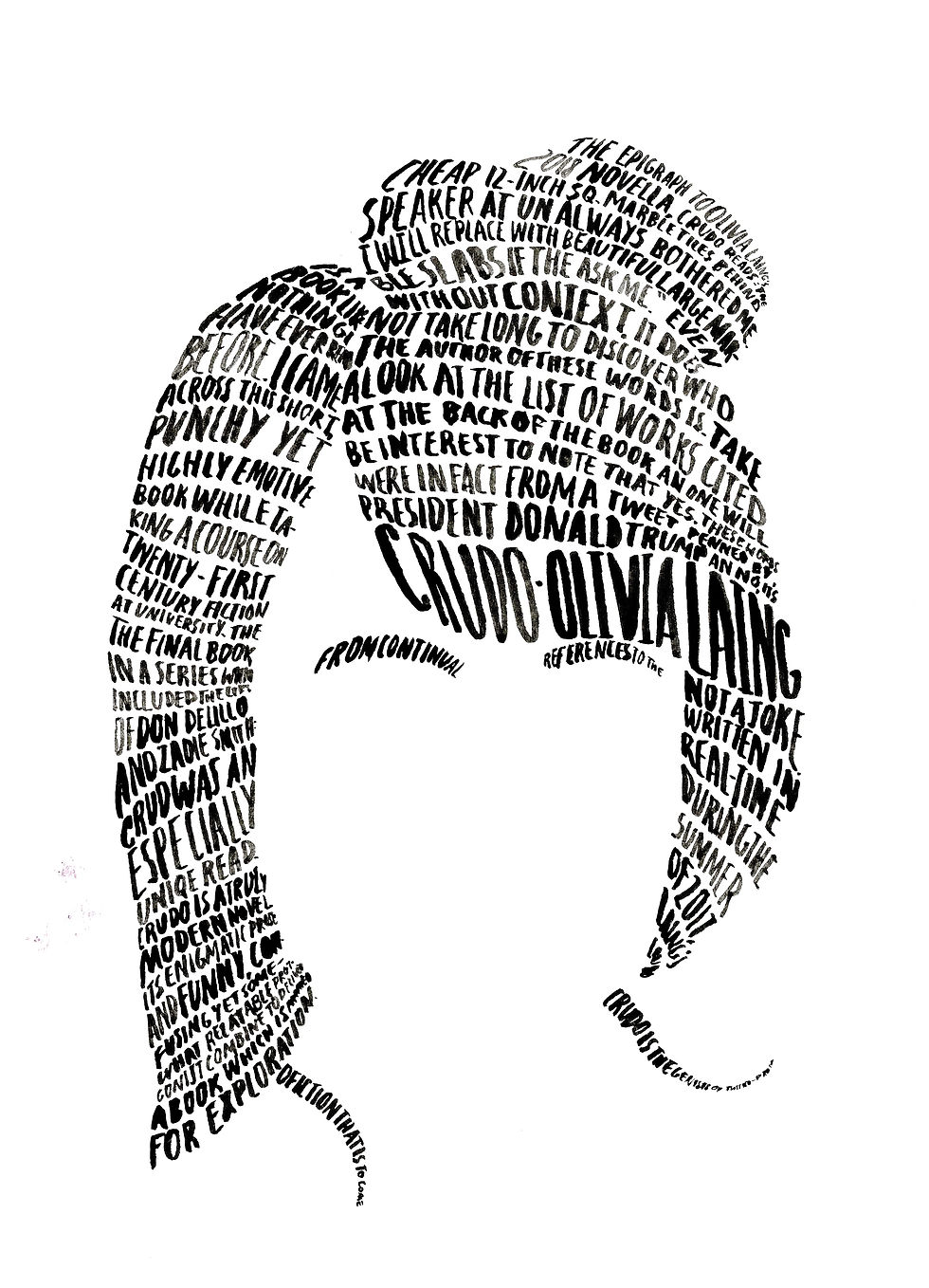When social media meets autofiction: Olivia Laing's Crudo
- Megan Kenyon
- Jun 23, 2020
- 2 min read

The epigraph to Olivia Laing’s 2018 novella, Crudo reads: “The cheap 12-inch sq. marble tiles behind speaker at UN always bothered me. I will replace with beautiful large marble slabs if they ask me”. Even without context, it does not take long to discover who the author of these words is. Take a look at the list of works cited at the back of the book and one will be interested to note that yes, these words were in fact from a Tweet penned by President Donald Trump and no, it’s not a joke.
Written in real-time during the summer of 2017, Laing’s Crudo is a book like nothing I had ever read before. I came across this short, punchy yet highly emotive book while taking a course on twenty-first century fiction at university. The final book in a series which included the likes of Don DeLillo and Zadie Smith: Crudo was an especially unique read. Laing’s protagonist is named Kathy. She is a holistic, skittish character who is to some extent an amalgamation of the author Kathy Acker and Laing herself. Acker’s prose features in small chunks throughout the text, with the protagonist explicitly referring to having written Acker’s well-known works, Great Expectations and Blood and guts in High School. Penning a small chunk each day, Laing wrote Crudo as it happened. She drops hints of reality throughout the book; from a mention of the sacking of Steve Bannon in June 2017 and its subsequent discussion on Twitter, to the Brexit negotiations and the late Steven Hawking’s take-down of Jeremy Hunt in The Telegraph. Laing uses these events to ground the novel in a world of rapid 24/7 news mostly consumed via Twitter. We live through those somewhat turbulent times with her, remembering each reference and reflecting upon their consequences.
Social media almost becomes a character throughout Crudo. The constant references to the microcosm of the Twitter-sphere, only deepen Kathy’s anxieties about the world in general. Her language is tweet-like, coming in short sentences with personal introspection mixing freely among the discussion of verifiable news. This blending of social media with literary prose both from Kathy Acker and others makes for an interesting comment upon our simultaneous presence and distance from the world around us. Consumed through a screen, the global events which Kathy discusses become even more anxiety-ridden. While the world goes on around her, far away from her existence in London, Kathy is constantly reminded of its presence by checking her phone.
Crudo is a truly modern novel. Its enigmatic prose and funny, confusing yet somewhat relatable protagonist combine to deliver a book which is primed for exploration. From continual references to the Twitter accounts of both Melania and Donald Trump, to well-known aspects of the author’s own life, Crudo is grounded in its moment of writing. But it is also a glimpse of the fiction that is to come. A recent article in the London Review of Books discusses the rise of ‘Instapoetry’. Perhaps what we’re seeing in Crudo is the genesis of Twitter-prose.




Comments